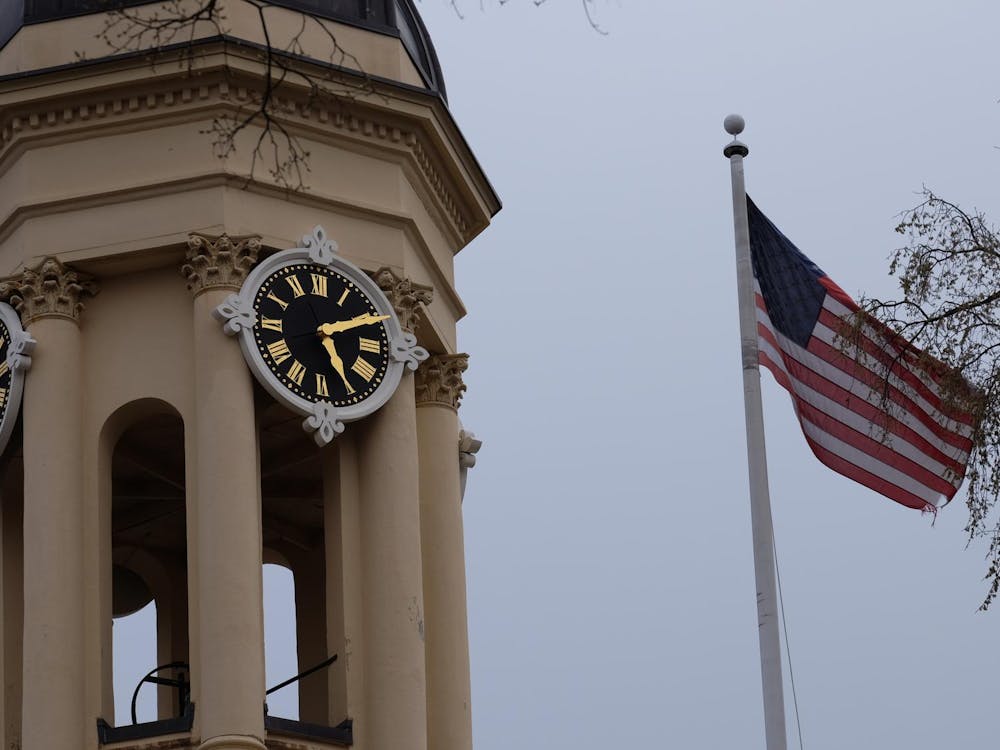One of the candidates for senior class president seemed to feel entitled to the position. This inevitable incumbent didn't seem to put nearly as much effort into the campaign as his opponent did, thinking the presidency was rightfully his. He had experience, but that experience was tempered by the widespread perception of the class government as out of touch and incompetent; what, juniors asked, have the Class of 2009 officers done for me? I have argued before that the first law of politics is "perception uber alles," and Grant Bermann '09 did not do nearly enough to alter the widespread belief among juniors that he hadn't helped us. This election should have been a cakewalk for Bermann. That it wasn't speaks volumes to his public image.
Then there was the inexperienced candidate of change who came out of nowhere with a ton of baggage just waiting to be rummaged through. "Change is good," but change to what? A lot of undecided voters who disliked the status quo were turned off by his explanations and campaigning style. I can easily think of six people who considered voting for Alec Williams '09 but ended up voting for Bermann because something Williams said rubbed them the wrong way. Those voters, incidentally, would have changed the outcome of the election. Just like in the real world, the undecided voters broke to the "incumbent," wary of change during an incredibly important time in our Princeton careers. Why risk disaster when mediocrity is assured?
Then there were the USG's ongoing attempts to squander its reputation. First was the knuckleheaded attempt by many members of the USG to block Kyle Smith '09's referendum. What's striking about the episode is just how out of touch these members of the USG are with their constituents. The student body realizes that these questions - while decidedly imperfect - offer valuable insights into student opinion. Three-quarters of students who voted thought the referendum should appear again next year. Hopefully next year's questions can include more specific queries, but that so many thought this issue important points to the disconnect between students and some campus leaders.
The USG's inability to conduct an election is also troubling. This week we have seen the revelation that the USG changed the rules last year without telling anyone and then simply declared winners without giving the monitors the ability to check the underlying data. The winners, just like Robert Mugabe, may actually have won as many votes as claimed, but as long as there is no way of checking on that, the result is illegitimate. Since we haven't invented a time machine, there is no remedy, but the situation is incredibly troubling. Further, the coding snafu that delayed elections results by a day was a laughable instance of USG officials not thinking about the consequences of their actions and not communicating.
All of this dances around the albatross hanging from the USG's neck: the administration. The main damage our student government took recently was the sense, somewhat justified, that it would rather carry water for the administration than stand up for students. The poll result showing that, by a 3-1 margin overall and by a 9-2 margin among seniors, students don't believe that the administration listens to us is as much an indictment of the USG as it is of Nassau Hall. The USG's job is to represent our views and to be our voice, and students overwhelmingly believe that our representatives do neither. Outside of a few instances of cooperation, which the USG has done an extremely bad job of publicizing, students believe that no one is listening.
The other unflattering referendum results also deserve notice. Just like with the Bush administration, on-campus approval ratings trend constantly downward as people learn more about how Princeton is run. The more we know, the angrier we are. Generally speaking, one would hope for the opposite.
The percentage of students "strongly disapproving" of the administration quadruples in our four years here. Only 14 percent of freshmen "disapprove" of the administration, while 32 percent of seniors do. Approval ratings, meanwhile, decline from 49 percent freshman year to 31 percent by graduation. Overall, a net approval rating of 35 percentage points plummets 51 points to a net disapproval of 16 points in four years. And a majority of seniors believe things are worse today than they were a couple years ago. While these numbers stem from a limited sample answering flawed questions, they still speak to widespread discontent.
In the end, this anger is what infects our relationship with our representatives. With no way to hold the administration accountable, we have no option but to vent our frustrations at convenient class officers instead.

Barry Caro is a history major from White Plains, N.Y. He can be reached at bcaro@princeton.edu.








